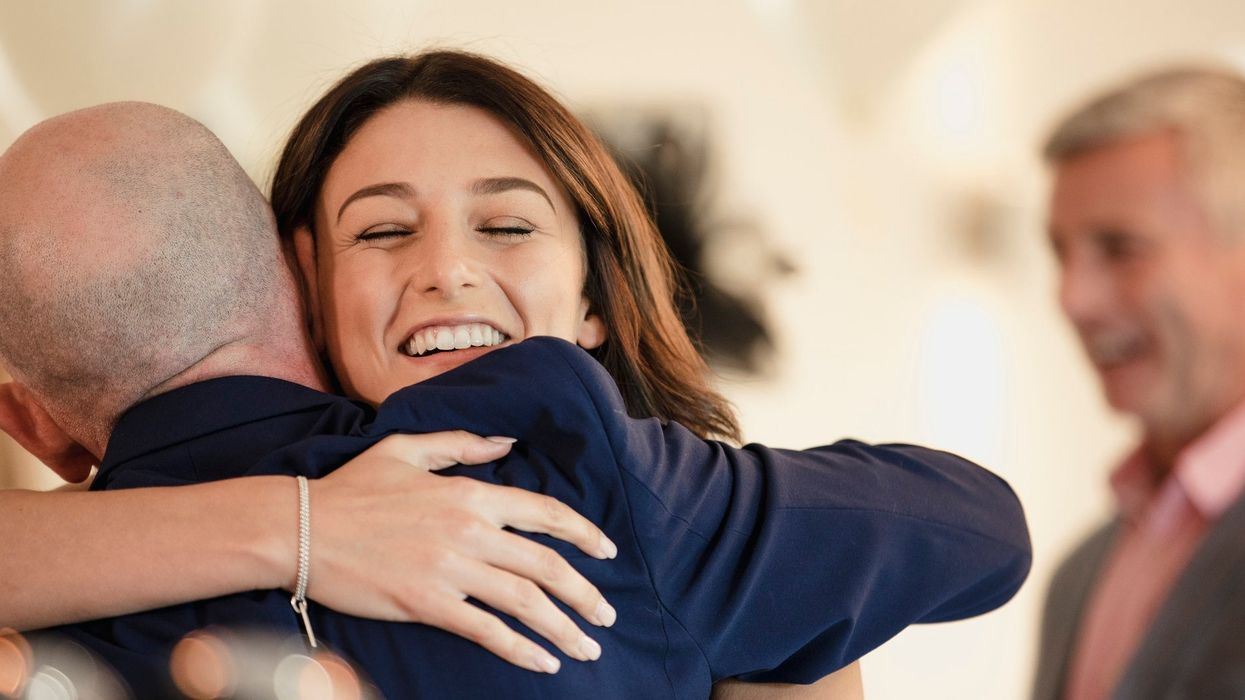News
Louis Staples
Oct 21, 2018

Image:
Istock
For people who recoil with awkwardness at the prospect of being hugged, life can sometimes be challenging and awkward.
You never know when someone you're not familiar with that well will decide that, yes, today is the day to wrap their arms around you.
In this situation, you don’t have much choice but to grin and bear it, or try to deflect somehow – perhaps with an air kiss or handshake.
But regardless of whether you’re partial to a hug or not, new research has given us the scientific low-down on why some people hate hugging.
Why people love or hate hugging.
According to experts, upbringing may be key to a person’s opinion on hugging.
Suzanne Degges-White, a professor of counselling and counsellor education at Northern Illinois University, says:
Our tendency to engage in physical touch—whether hugging, a pat on the back, or linking arms with a friend—is often a product of our early childhood experiences
A 2012 study found that people who were raised by huggers were more likely to continue this tradition. The study also stated that “hugging is an important element in a child’s emotional upbringing”.
Degges-White suggests that people who weren’t hugged by their parents often as children may feel uncomfortable at the thought of hugging.
In a family that was not typically physically demonstrative, children may grow up and follow that same pattern with their own kids.
Though, perhaps confusingly, growing up without frequent hugging can have the opposite effect.
Some children grow up and feel ‘starved’ for touch and become social huggers that can’t greet a friend without an embrace or a touch on the shoulder.
There’s also a cultural element to this issue. People in the America and England hug and touch much less than people in France or Puerto Rico, according to a 2010 study.
How huggers should interact with people who are hug avoidant.
It’s wise to skip hugging with people unless you are genuinely close with them and have established a more tactile bond. While you might be comfortable with this, not everyone feels the same.
Samantha Hess, a “professional cuddler” and founder of an Oregon-based service that teaches people how to be more tactile, says it’s important to be mindful of other people’s body language.
Everyone has the right to control what happens to their body. Many of our clients aren’t comfortable with even a handshake when they first arrive.
She adds that it can take a long time for people to feel comfortable enough to enjoy hugging with a new person - if they ever get there at all.
How to overcome your aversion to hugs.
Of course there’s nothing wrong with you if you don’t like hugging, and no one should ever feel pressured into touching people if they don’t want to. But for those wanting to learn to love the simple embrace, Hess has a few tips:
We go over consent and boundaries prior to any touch and reassure them they are always welcome to change their mind
We have 78 cuddle poses we can guide people through so we can find something for just about any comfort level.
Sometimes it’s also about pushing through things and learning that a hug might not be so bad after all.
You may very well find yourself overcome with relief, gratitude, surprise, acceptance and even regret for having closed yourself off from your own self for so long
H/T: Time
More: Scientists have found a surprising use for sperm

Top 100
The Conversation (0)













